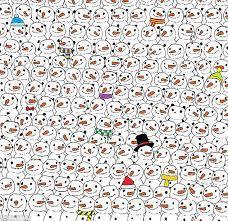
English, 24.10.2019 04:00, Queenhagar
For anyone claiming to write a history of a science of which reasoning forms the very essence, the question of the logic is of paramount importance. for example, a modern western account of any historical period in mathematics would, as a matter of course, show a detailed proof justifying each and every mathematical result discussed. despite this obvious fact, general histories of chinese mathematics rarely show concern for this issue. they insist above all on presenting only the mathematical results, the logical underpinnings of which are unclear, and rarely do they provide the reader with any semblance of a proof. while this approach to the history of mathematics is naturally a result of various causes, one which probably plays an essential role is the fact that most chinese mathematical works themselves contain no logical justifications: according to this worldview, apparently it was enough to state authoritatively that something was true—it was completely superfluous to demonstrate why it was true.
there is one major exception to this general pattern, namely a set of chinese argumentative discourses which has been handed down to us from the first millennium a. d. we are referring to the commentaries and sub-commentaries on the jiuzhang suanshu ["the nine chapters on the athematical art"], the key work which inaugurated chinese mathematics and served as a reference for it over a long period of its history. this fact, which was long unrecognized, means that we are now in a position to know a lot more about the logical construction of mathematics in china than, for example, in egypt, mesopotamia, or india.
the author implies all of the following except:
a the ancient mathematical texts of mesopotamia do not provide explicit proofs for all their results.
b the first western scholars studying the history of chinese mathematics were unaware of the proofs available in the commentaries and sub-commentaries on the jiuzhang suanshu
c proofs are a method of demonstrating the logical arguments underlying a mathematical result.
d the majority of important chinese mathematicians between 1000 and 1500 would have known of the jiuzhang suanshu
e the authors of the jiuzhang suanshu do not make any claim justifying their own authority.

Answers: 2
Other questions on the subject: English

English, 20.06.2019 18:04, mairealexander87
If you can answer this riddle right in the next five minutes i will give you 20 points davids dad had two sons, snap, crackle, and
Answers: 2


English, 21.06.2019 20:50, Kekkdkskdkdk
In "i know why the caged bird sings," how doesmarguerite's reaction to oppression differ from the reactionof the caged bird? •she refuses to dress nicely for mrs. flowers.•she refuses to leave the house.•she refuses to eat mrs. flowers's cookies.•she refuses to speak to anyone.
Answers: 3

English, 22.06.2019 00:00, obeyal77
Which of the following is the original meaning of the word college? a. an independent institution of higher learning offering a course of general studies leading to a bachelor’s degree b. a building used for an educational or religious purpose c. a group of persons considered by law to be a unit d. a body of clergy, living together and supported by a foundation
Answers: 1
Do you know the correct answer?
For anyone claiming to write a history of a science of which reasoning forms the very essence, the q...
Questions in other subjects:

Chemistry, 25.04.2020 08:19


Biology, 25.04.2020 08:19

Chemistry, 25.04.2020 08:20

History, 25.04.2020 08:20


Mathematics, 25.04.2020 08:20

Biology, 25.04.2020 08:21

Mathematics, 25.04.2020 08:22







